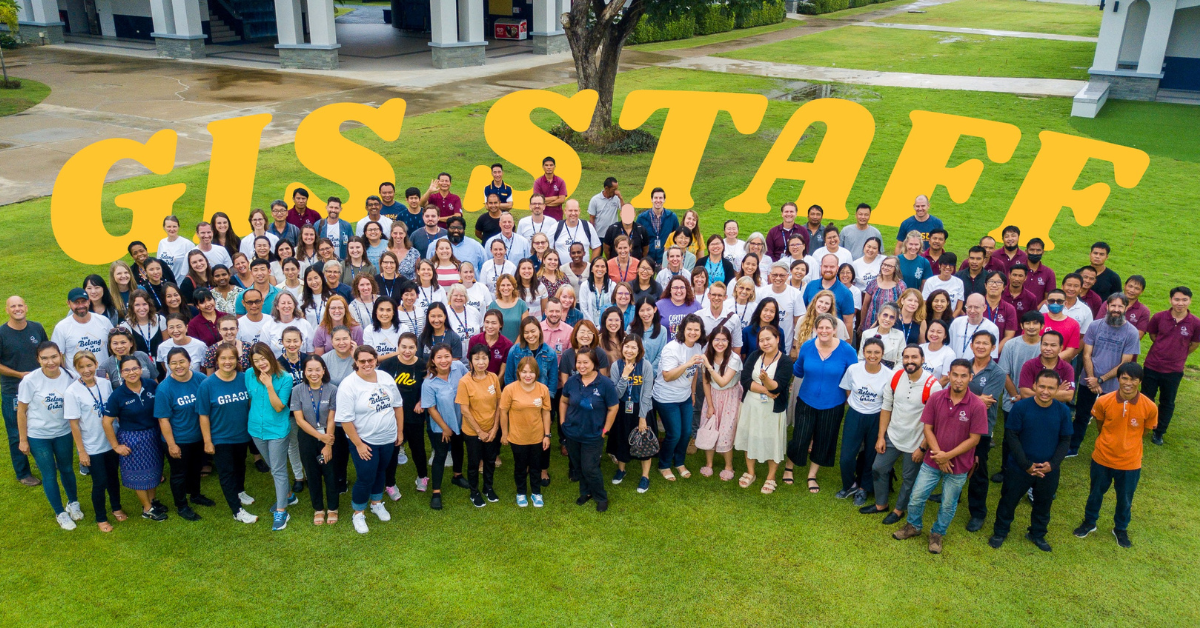Grace International School Case Study: Transforming Workplace Culture From Toxic to Healthy
How do you transform a toxic workplace into one that is healthy?
3 min read
 Robert Wachter
:
April, 17 2024
Robert Wachter
:
April, 17 2024

Imagine this scenario: You’re the President or VP at a Christian college or university. Leaving work one Friday afternoon, you commit to spending the weekend praying over everything you wish you could change about the institution.
To your amazement, when you walk back into your office on Monday, you find that all your prayers have been answered. Yes, every single one.
If this happened to you, what specifically would be different on Monday?
At Best Christian Workplaces, we’ve spent decades listening as Christian college and university faculty, administration, and staff explore questions like these. Turns out, it’s not hard for anyone to imagine what “Friday Campus” looks like versus “Monday Campus.” We often have a pretty good idea of what’s broken and what we hope for. The question is: How can we get there from here—and is such a thing even possible?
On Friday, too many professors, deans, office managers, and student life directors (to name just a few) went home frustrated that their interactions with top levels of administration were meddlesome yet absent, creating expectations on what happened in the classrooms and on campus while seeming to be traveling too frequently, giving his or her best hours to donors and trustees and feeling unavailable to show support or solidarity for life on the campus. They are often discouraged that, while their classroom, lab, and department seemed like an exciting place to learn and grow, they felt disconnected from the rest of the institution, feeling as though each area of campus existed in isolated siloes. They often felt pulled between the mission that donors and trustees believed in (and the official outward-facing messaging) contrasted with the actual learning needs and culture of the student body and academic body. They experience a tension that their non-academic peers have a different experience of the institution’s reality and sometimes it feels like those two worlds don’t come together. More than anything else, they felt they left the week exhausted by a long list of competing demands, wanting to coalesce around meaningful, mission-driven work that results day by day in a compelling vocation.
Then Monday Campus came to life. Here, the university president is skillful with donors and supporters but able to shepherd the organization with humility, openness, and compassion. Faculty are encouraged to grow in their fields and offered the academic freedom to develop students according to student needs and field research. Trust has been built throughout the organization because, first and foremost, the college/university has a clearly communicated and compelling mission. From the board of trustees to the team member who arrived yesterday, whether teaching Freshman Biology, overseeing Ph.D. candidates, serving dinner in the cafeteria, or setting up chairs for a student union event, each and every employee is ignited by the mission of the institution. Each one is eager to lend their particular skills, training, and heart of excellence towards their shared vision. They are recognized and appreciated by their teammates at all levels around the organization—and encouraged to recognize and appreciate others, too.
Does Monday Campus sound too good to be true? It probably is—if you only have the weekend to pull it off. But the good news is that we can start building toward these changes now, one step at a time.
The dynamics we’re describing are what we at Best Christian Workplaces call The 8 Flourishing Factors. Together, they build a framework for a healthy workplace culture in higher education, and strong employee engagement among faculty, staff, and administration, breaking down the walls of difference and building a common sense of cohesion. We know what it looks like, and we understand how to get there. Furthermore, we follow the State Model of engagement, and we understand the factors that keep a college or university trapped in “Friday Campus” dynamics.
However far away this vision might feel to you, it’s never too late to start on the journey to a flourishing university.
Dr. Steven Mason, President of LeTourneau University found himself leading a Friday Campus, and worked with his team, in partnership with Best Christian Workplaces, to build a Monday Campus. When he first partnered with Best Christian Workplaces, LeTourneau scored 3.58—solidly in the lowest or Toxic ranking. Yet in just eight years of working together, LeTourneau’s scores are well within the healthy range. Dr. Mason, with his commitment to the University’s mission and willingness to look challenging news in the face without defensiveness, has been a reliable catalyst for that change.
If you’d like to start considering what Monday Campus might look like for your college or university—and how to get there—we’d love to get to know you.
We have so much we’re excited to share with you.
Are you ready to learn more?
Click below to download this free resource.
Reach out to Robert Wachter, global marketing director with Best Christian Workplaces, for more information about our employee engagement survey. Schedule a meeting today.

How do you transform a toxic workplace into one that is healthy?

A flourishing workplace with highly engaged employees provides a rewarding experience for workers, leaders, and everyone in the sphere of influence...

Let’s face it: we’ve already been using forms of Artificial Intelligence (AI) for twenty-plus years; we’ve just called it by a different name:...